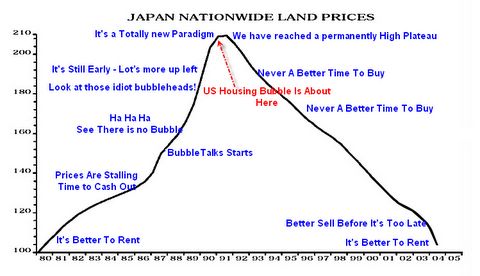
With truly extraordinary speed, opinion has swung behind the radical idea that the government should commit hundreds of billions in taxpayer money to purchasing dud loans from banks that aren"t actually insolvent. As recently as a week ago, no public official had even mentioned this option. Now the Treasury, the Fed and congressional leaders are promising its enactment within days. The scheme has gone from invisibility to inevitability in the blink of an eye. This is extremely dangerous.
The plan is being marketed under false pretenses. Supporters have invoked the shining success of the Resolution Trust Corporation as justification and precedent. But the RTC, which was created in 1989 to clean up the wreckage of the savings-and-loan crisis, bears little resemblance to what is being contemplated now. The RTC collected and eventually sold off loans made by thrifts that had gone bust. The administration proposes to buy up bad loans before the lenders go bust. This difference raises several questions.
The first is whether the bailout is necessary. In 1989, there was no choice. The federal government insured the thrifts, so when they failed, the feds were left holding their loans; the RTC"s job was simply to get rid of them. But in buying bad loans before banks fail, the Bush administration would be signing up for a financial war of choice. It would spend billions of dollars on the theory that preemption will avert the mass destruction of banks. There are cheaper ways to stabilize the system.
In the 1980s, the government did not need a strategy to decide which bad loans to take over; it dealt with anything that fell into its lap as a result of a thrift bankruptcy. But under the current proposal, the government would go out and shop for bad loans. These come in all shapes and sizes, so the government would have to judge what type of loans it wants. They are illiquid, so it"s hard to know how to value them. Bad loans are weighing down the financial system precisely because private-sector experts can"t determine their worth. The government would have no better handle on the problem.
In practice this means the government would make subjective choices about which bad loans to buy, and it would pay more than fair value. Billions in taxpayer money would be transferred to the shareholders and creditors of banks, and the banks from which the government bought most loans would be subsidized more than their rivals. If the government bought the most from the sickest institutions, it would be slowing the healthy process in which strong players buy up the weak, delaying an eventual recovery. The haggling over which banks got to unload the most would drag on for months. So the hope that this "systematic" plan can be a near-term substitute for ad hoc AIG-style bailouts is illusory.
Within hours of the Treasury announcement Friday, economists had proposed preferable alternatives. Their core insight is that it is better to boost the banking system by increasing its capital than by reducing its loans. Given a fatter capital cushion, banks would have time to dispose of the bad loans in an orderly fashion. Taxpayers would be spared the experience of wandering into a bad-loan bazaar and being ripped off by every merchant.








 By Mary Alice Carr
By Mary Alice Carr





